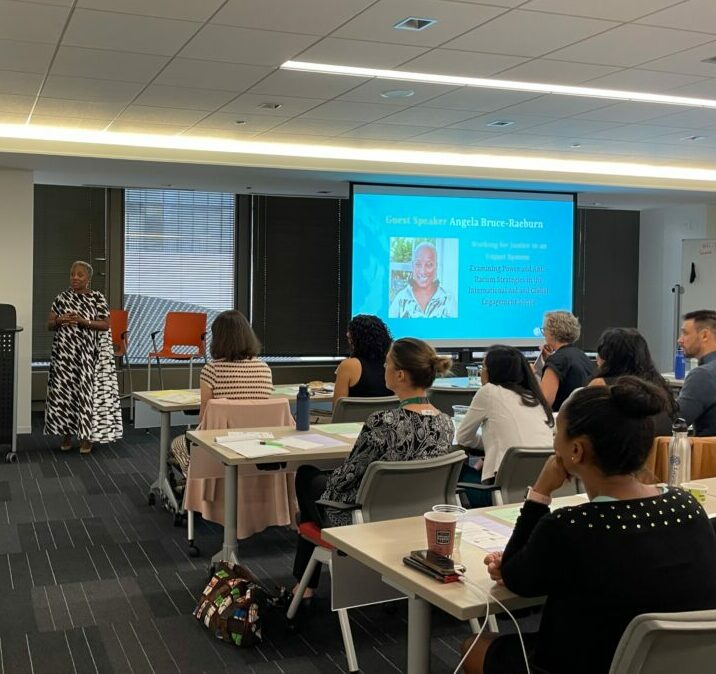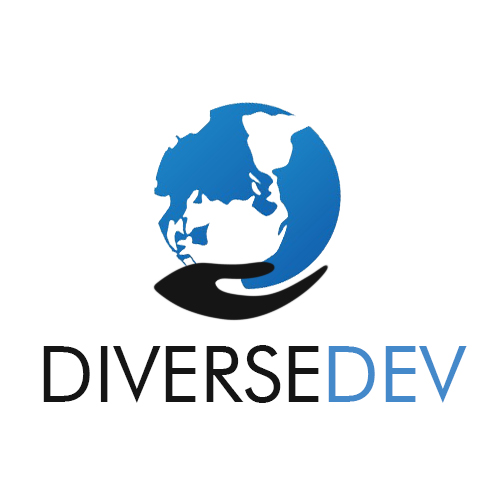
27 Sep Opinion: Addressing DEIA myths is critical to global development equity
Diversity, equity, inclusion, and accessibility, or DEIA, is facing headwinds, at the same time as the topics of localization, decolonization, and dismantling of white saviorism are gaining ground in global development. How can DEIA practitioners in the sector ensure that their area of expertise is prioritized rather than shelved in development initiatives’ program design, funding, and implementation?
The recent Supreme Court decision in the United States ending the use of race as a factor in university admissions was not a surprise to anyone paying attention to DEIA. For many people who work in DEIA or any community of practice whose focus is equity, it may have been a setback, but not a totally unexpected one.
We should not forget that at every moment in history when there has been a movement toward equity and justice, particularly when led by Black people, there has been a backlash to their progress, as institutions ultimately coalesced around reinforcing norms rooted in white supremacy.
This fact was never lost on DEIA advocates, as most of us operated under the reality that the newly discovered solidarity with global development organizations catalyzed by the brutal murder of George Floyd in the United States would not stand the test of time.
Global development organizations faced DEIA implementation challenges from its inception because of the dual nature of these groups’ role as proponents of a DEIA agenda — internally examining oppressive organizational systems that were designed to center whiteness, to the exclusion of others both in policy and practice, while externally confronting historical colonial and racist legacies founded on white saviorism.
DEIA has had to overcome the most pernicious misconceptions about its application — that it is a conduit for “unqualified” Black people to achieve positions of power and opportunities that they did not deserve. Who needs facts when we can advance these myths that stigmatize Black people when the data has consistently demonstrated that white women were the biggest beneficiaries of affirmative action programs then and now, but received almost none of the demonization or backlash that accompanied it.
In the global development sector, in fact, binary gender programs and gender equity solutions have proliferated over decades as organizations devoted considerable time and resources to the elevation of gender to ensure more robust plans for the inclusion of women. Racialized issues, unbalanced power relationships, colonization philanthropy, and white saviorism — not so much.
In development organizations, there is the added tension of how DEIA is perceived and understood globally. For many international organizations, DEIA is an American construct designed to address racial issues in the U.S. and the accompanying long-standing racial disparities in organizational leadership roles.
It is this lack of understanding of the potential of DEIA programs and processes that has stymied DEIA both in the U.S. and globally. For global development organizations already concerned about dwindling resources from wealthy philanthropic groups and high-income donor countries, removing DEIA from programming or organizational strategy is the logical next step.
Essentially, what the U.S. Supreme Court offered with this ruling is an opening for organizations already ambivalent about DEIA to roll back commitments made in 2020.
A Devex opinion article in 2022 elaborates, “Within the unique sector of global development, efforts to address DEIA have lacked a cultural humility and the curiosity necessary to see how DEIA inputs into structural policies, processes, programs, and practices directly link to real-world, tangible outcomes in local communities and for people who may be marginalized or made vulnerable due to their personal characteristics or identities.”
Opinion: Global development needs DEIA initiatives now more than ever
There is still a limited understanding of how diversity, equity, inclusion, and accessibility can lead to positive outcomes in global development. Yet DEIA is an essential framework for the sector.
The challenge for global development organizations is that they operate on quick wins and low-hanging fruit to amplify their value to donors and to respond to the next funding opportunity. As a result, most organizations do not allocate enough time or resources to understand what DEIA applies in the context of the country and the organization can yield to promote fairness and justice among their workforce and the people they serve.
What can be done in development organizations to embed DEIA despite political headwinds already swaying organizational commitments?
- Address myths about DEIA that will be critical to its survival. DEIA initiatives should never be considered as a benevolent or a feel-good endeavor. The actual lives of racialized people are harmed every day by racist systems that are doing exactly what they were intended to do.
- Educate your organization’s leaders on DEIA, Affirmative Action, and the movements for social and racial justice in your societies.
- Refrain from using language often found in the private sector such as “diversity is good for the bottom line” or any language that suggests that the humanity of groups experiencing marginalization and racism need to be attached to profits or some bottom line to be accepted, believed, and acted upon. Why do I have to quantify my humanity?
- Donors can demand an equity lens. Donors should ask organizations that they fund for their DEIA commitments and plans for addressing organizational disparities in leadership, the board of directors, as well as staffing representation. At the same time, donors can seek to ensure equity in partnership development, program planning, design, implementation, and evaluation.
- Invest in DEIA. A DEIA strategy and commitment requires long-term organizational investment. Just like organizations invest in training staff to advance their professional development, investing in DEIA is to disrupt, dismantle, and then rebuild with humility.
It used to be that development organizations and their leaders believed in their right to speak on behalf of Black and racialized people all over the world. DEIA has challenged this model and forced conversations that were unheard of just a few years ago, granting people who were historically ignored their own voices. Despite the misconceptions and active resistance to its application, DEIA’s value cannot be underestimated, especially as it pertains to racial equity.
“We were thrilled to have Angela join us as the keynote speaker for our symposium on Decolonizing Power and DEI in the International Development sector. She brought a depth of expertise, perspective, and passion to share with our audience. The heartfelt and authentic stories she wove into her presentation brought these challenging concepts to life. Angela’s strong convictions to create positive change and to help others on their path to do so resonated with the attendees, irrespective of where they are on that journey. We are indebted to Angela for making time to join us.”
– Joan Sherman, Co-Director of the Simmons Center
Read More: https://www.devex.com/news/opinion-addressing-deia-myths-is-critical-to-global-development-equity-106282
